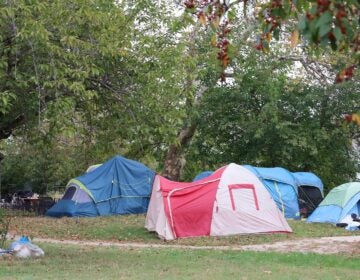Michael Leithead

Michael Leithead
Age:45
Education: Masters in business administration, in finance, from Villanova University; Bachelors in Business Operations Management from LeMoyne College in Syracuse, N.Y.
Professional: Senior Deputy Executive Director of the Philadelphia Housing Authority.
Personal: Lives with family in Northeast Philadelphia.
Lifelong Philadelphia resident
Neighborhood: Somerton.
Appointer: City Councilman Brian O’Neill
Q&A
Why is zoning reform important to you? From my perspective, it is important because the present zoning system is really outdated. The housing authority has a number of projects throughout the city, and it requires a number of variances simply to support what in today’s world is the norm – more modernized housing. Hopefully, this will lead to a more streamlined process that will balance a developer’s need to keep a project moving in a timely manner with the community’s and city’s needs for a vision and plan to maintain the integrity and uniqueness of our community.
Why are you a good choice for this commission? I have 19 years experience in housing at the Philadelphia Housing Authority, overseeing both the property management and development work at the PHA. The PHA has been a significant player in the revitalization of neighborhoods, especially over the past 10 years. We have invested more than $1.2 billion in the city. Issues crop up in a variety of neighborhoods in which we do development, and no two communities seem to be quite the same in terms of zoning requirements. The objective, from my viewpoint, is to get to a point where there is more uniformity in the code. Also, I think my being a long-time resident of Northeast Philadelphia gives me a good understanding of the issues up there.
What is the most pressing zoning issue Philadelphia faces? Balancing the need for some uniformity with the need to maintain the unique charm of the neighborhoods. This is part of the charm of Philadelphia – it is known as a city of neighborhoods – it’s what makes us unique. At the same time, there can be some uniformity in the zoning code. A new zoning code needs to be more consistent, easy to understand, and conform more with up to date zoning issues, while maintaining the neighborhoods’ character. The balance is the challenge.
What should be done to address this issue? I think the (establishment of the) commission is really the first step. The next step is how well we as a group can really work together. Part of the challenge when there are 31 people is giving everyone the opportunity to participate. The next part of the challenge – we’ve got a good working group in the room, and we need to be able to funnel each person’s perspective into (a single document) that will cut across all of the neighborhoods, that will bring consistency. With 31 folks in the room and the fact that the time frame is relatively short, it’s going to require a great deal of work, a great deal of tenacity, to work through these issues relatively quickly and come up with a working, first-draft document.
WHYY is your source for fact-based, in-depth journalism and information. As a nonprofit organization, we rely on financial support from readers like you. Please give today.






